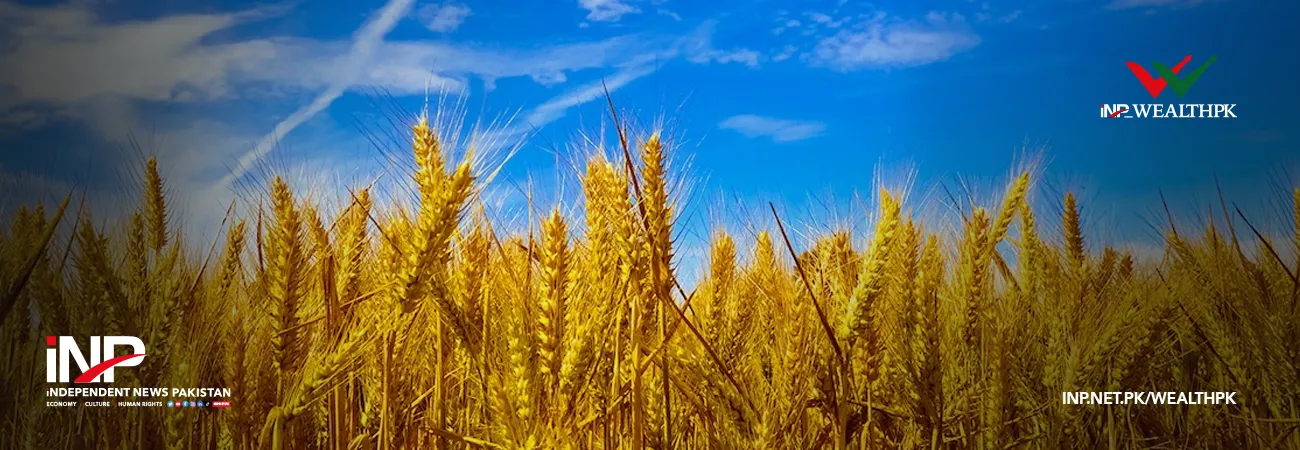INP-WealthPk
Arooj Zulfiqar
Pakistan's agriculture sector achieved a notable milestone, as the Rabi 2023-24 wheat crop exceeded the sowing target. This success not only demonstrates the resilience and commitment of Pakistani farmers but also signifies the country's progress towards agricultural prosperity and self-sufficiency in wheat production. The Rabi season has witnessed the sowing of wheat crops over more than 22.14 million acres in various crop-growing regions, which will satisfactorily meet the staple food requirements and help maintain strategic reserves throughout the year. The crop sowing target for the current season (2023-24) was set at 22.23 million acres, which has been achieved by 99.63%. "While the surpassing of wheat sowing target for the Rabi 2023-24 season is undoubtedly a positive development, we must not ignore the challenges that lie ahead. Achieving high sowing targets is one aspect, but ensuring optimal yields and efficient post-harvest management is equally crucial," said M. Sikandar, Principle Scientific Officer at the National Agricultural Research Council (NARC).
"Improving agricultural practices, enhancing access to modern farming technologies, and tackling issues such as water scarcity and soil degradation should be our top priorities. Moreover, there is a need for greater coordination among the government agencies, research institutions, and farmers to develop tailored solutions that maximize productivity and sustainability," he said. "Surpassing the sowing target is a positive development. It will increase the domestic wheat production, and Pakistan is likely to experience a decrease in the need for importing wheat from the international markets. "This reduction in wheat imports will not only conserve foreign exchange reserves but also strengthen the country's self-sufficiency in meeting its food security needs. As a result, Pakistan will be able to allocate resources that would have been spent on imports to other sectors of the economy, thereby stimulating domestic economic growth," said the NARC scientist. "While the surpassing of wheat sowing target for the Rabi 2023-24 season is indeed a positive development, it's important to recognize the underlying socio-economic challenges that persist within Pakistan's agricultural sector," said M. Bilal Khan, Scientific Officer at the National Agricultural Research Centre.
"Despite achieving high sowing targets, many smallholder farmers continue to face barriers such as limited access to credit, inadequate infrastructure, and volatile market conditions. "To truly harness the potential of agricultural prosperity, the policymakers must prioritize initiatives that address these systemic issues and empower smallholder farmers. This includes expanding rural credit facilities, investing in rural infrastructure development, and implementing market reforms to ensure fair prices and equitable distribution of resources. "Additionally, there is a need for targeted support programs aimed at improving the livelihoods of marginalized farming communities, including women and landless laborers. By adopting a holistic approach that prioritizes inclusive growth and sustainable development, we can ensure that the benefits of agricultural prosperity are shared equitably across all segments of society," Bilal said.
INP: Credit: INP-WealthPk













